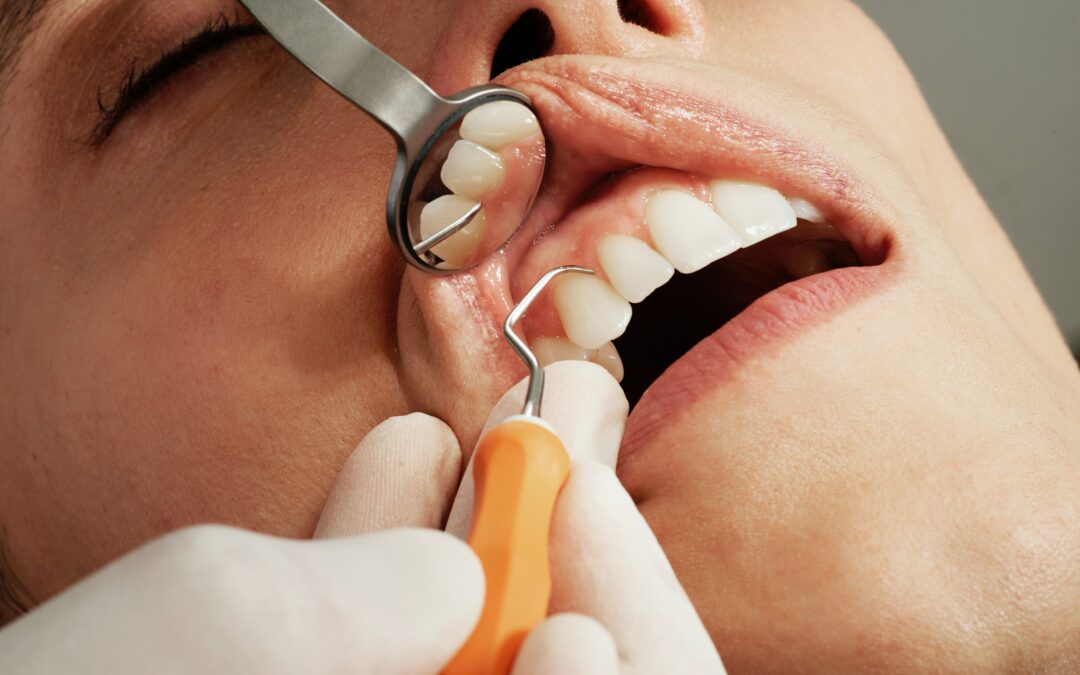When it comes to oral health, most of us tend to focus on the importance of having pearly white teeth. However, there’s another crucial aspect that often goes unnoticed but plays a significant role in maintaining a healthy mouth: gum health. Your gums are like the unsung heroes of your oral cavity, providing essential support and protection for your teeth. In this blog post, we’ll delve into the importance of gum health and why it matters for your overall well-being.
1. Gum Health and Overall Health
Believe it or not, the state of your gums can have a profound impact on your overall health. Research has shown a strong connection between gum disease and various systemic health conditions, including heart disease, diabetes, respiratory infections, and even pregnancy complications. Here’s why gum health matters:
a. Inflammation and Disease: Gum disease, also known as periodontitis, is characterized by inflammation and infection of the gums. When left untreated, this inflammation can spread throughout your body, contributing to chronic inflammation, which is a known risk factor for various diseases.
b. Bacterial Connection: The mouth is home to millions of bacteria, and gum disease can lead to an imbalance in your oral microbiome. This imbalance can contribute to the growth of harmful bacteria that may enter your bloodstream and affect other parts of your body.
c. Diabetes: Gum disease can make it harder for people with diabetes to control their blood sugar levels. Conversely, uncontrolled diabetes can lead to more severe gum problems, creating a dangerous cycle.
d. Heart Health: Research suggests a link between gum disease and heart disease. The inflammation and infection associated with gum disease may increase the risk of heart attacks and other cardiovascular issues.
2. Maintaining Healthy Gums
Now that we understand why gum health matters, let’s explore how you can take care of your gums to ensure they stay in optimal condition:
a. Brushing and Flossing: Regular brushing and flossing are essential for removing plaque and food particles that can lead to gum disease. Make sure to use a soft-bristle toothbrush and practice proper technique to avoid damaging your gums.
b. Regular Dental Check-Ups: Routine dental check-ups are crucial for monitoring your gum health. Your dentist can detect early signs of gum disease and provide guidance on proper oral hygiene.
c. Balanced Diet: A diet rich in fruits, vegetables, and whole grains provides essential nutrients for gum health. Vitamin C, in particular, is known for its role in gum tissue health.
d. Avoid Smoking and Excessive Alcohol: Smoking and heavy alcohol consumption are risk factors for gum disease. Quitting smoking and moderating alcohol intake can improve gum health.
e. Manage Stress: Chronic stress can weaken the immune system and increase the risk of gum disease. Practice stress-reduction techniques like meditation and exercise.
3. The Importance of Gum Health for a Beautiful Smile
Beyond the health implications, gum health also plays a significant role in the appearance of your smile. Healthy gums provide the foundation for your teeth and can enhance the aesthetics of your smile. Issues like receding gums or gum disease can lead to gum recession, causing your teeth to appear longer and less attractive.
Additionally, maintaining healthy gums can contribute to fresher breath. Gum disease often leads to bad breath (halitosis) due to the presence of bacteria and infection. By prioritizing gum health, you can enjoy the confidence that comes with a fresh and beautiful smile.
Gum health is a critical but often overlooked aspect of oral care that has far-reaching implications for your overall health and the appearance of your smile. By adopting a diligent oral hygiene routine, attending regular dental check-ups, and making healthy lifestyle choices, you can ensure that your gums remain healthy and continue to serve as the unsung heroes of your oral health journey. Remember, a healthy smile starts with healthy gums!

